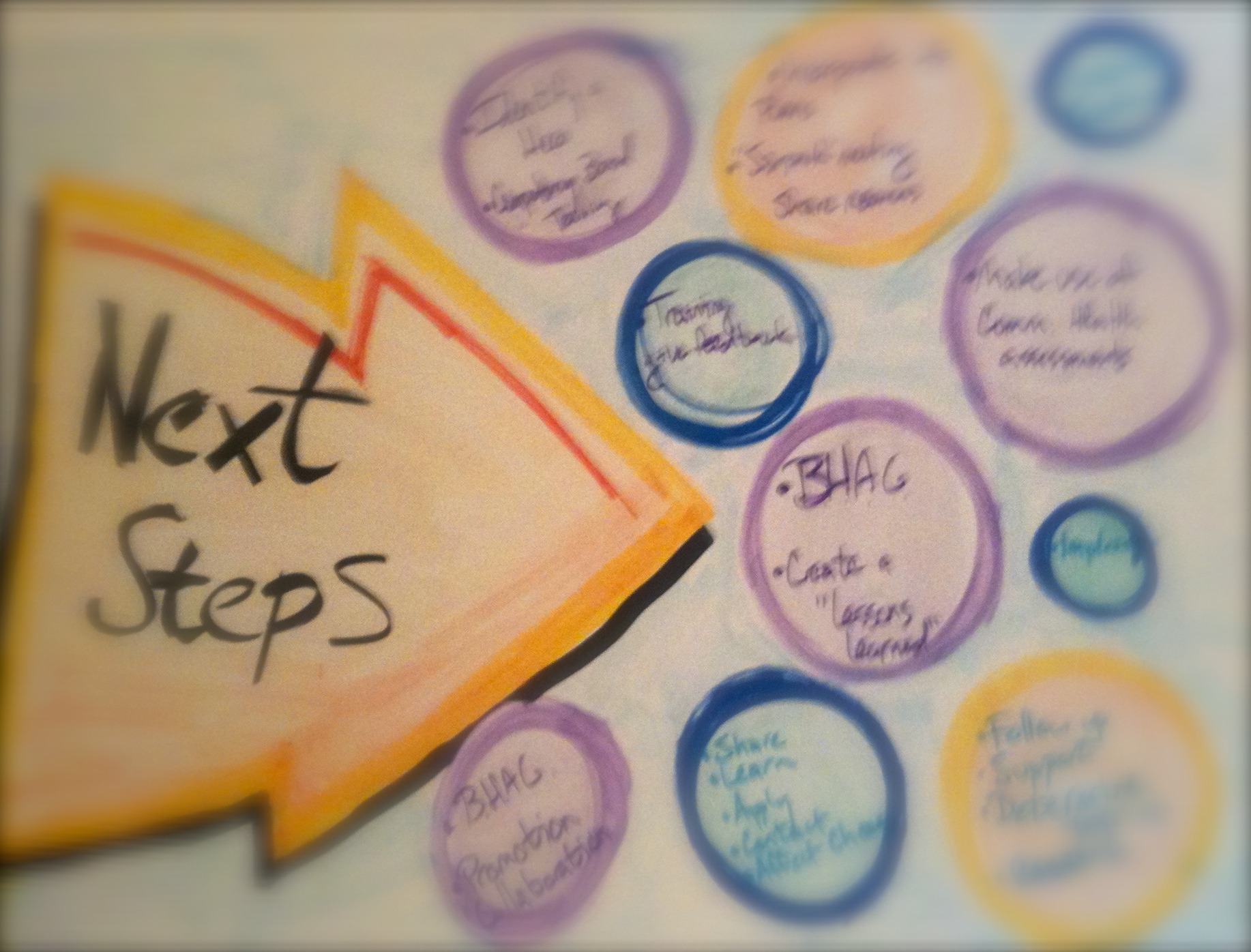Shared Work Not Shared Analysis or Aspiration

As I’ve been invited into work that is more and more complex, work where there are no clear answers and the experts disagree on the best courses of action, work where the only solutions to be found are those that we can create together, most groups I’ve worked with have been challenged to figure out where to start.
When in these type of complex situations, we often want to start in one of two places:
- Shared Analysis: the sense that we need to have some common understanding or agreement on root causes or analysis of the issue before we can work together.
- Shared Aspiration: the belief that we must agree on an aspirational vision of what we want to have happen in the world before we can do good work together.
Both of these have some validity, I think, but sometimes folks do not and will not agree on shared way of viewing the world. (And wouldn’t it be boring if we did?) Or they cannot or will not agree on a shared vision that is anything but generic and meaningless: we all want the world to be better for our children, for example, but how that moves us into action is unclear. It doesn’t tell us what we need to do.
In wildly diverse groups of people, insisting that we must share a perspective or vision at the outset is often a recipe for group deterioration and/or getting stuck. Forcing common analysis or shared aspiration at these times is not only counterproductive, it is false, and it undermines our work. The work is over before it even begins.
So, what do we do?
I think one answer is Shared Work. I’ve found in my own work in organizations and communities that sometimes we just need to get to work and figure how to navigate perspectives, visions, and purposes as we’re working. In Shared Work, our differences will arise, and we develop processes that help us navigate them while continuing to move forward. Instead of setting up preconditions or false consensus, we centralize the work and getting it done.
When the differences between us are so thick and laden with historical trauma and meaning, there may be times when we have to move on practical work and projects and only through sharing work in this way, can we come to know ourselves and each other enough that we can create and truly own our understandings and futures.
The idea and practice of shared work can get us started as we develop the relationships and some shared understanding of what we want together. It is not easy, but it can reveal enough of our next work to keep us moving forward together.
And as the work continues, groups will continue to struggle with this. We must resist the idea of resolution of difference. We must instead focus on what we were going to do next? What is our shared work here?
Sometimes that means that all we can do is simply see the very next step together and agree to take it. There is something about giving permission to not solve it all at once, which allows a group to figure out what is next for them. It allows them to get to work.
I’m finding that the idea of Shared work actually lets me work with a lot more and different people. It has me not clinging to my own perspective - or losing it - when I’m in a group. It helps me stay in the work and its practical application in the world.
It’s a great area of learning for me right now, and I wonder: What are you learning about working together?
This blog was originally posted on the Art of Hosting Beyond the Basics website.
 Tuesday
Tuesday
Reader Comments